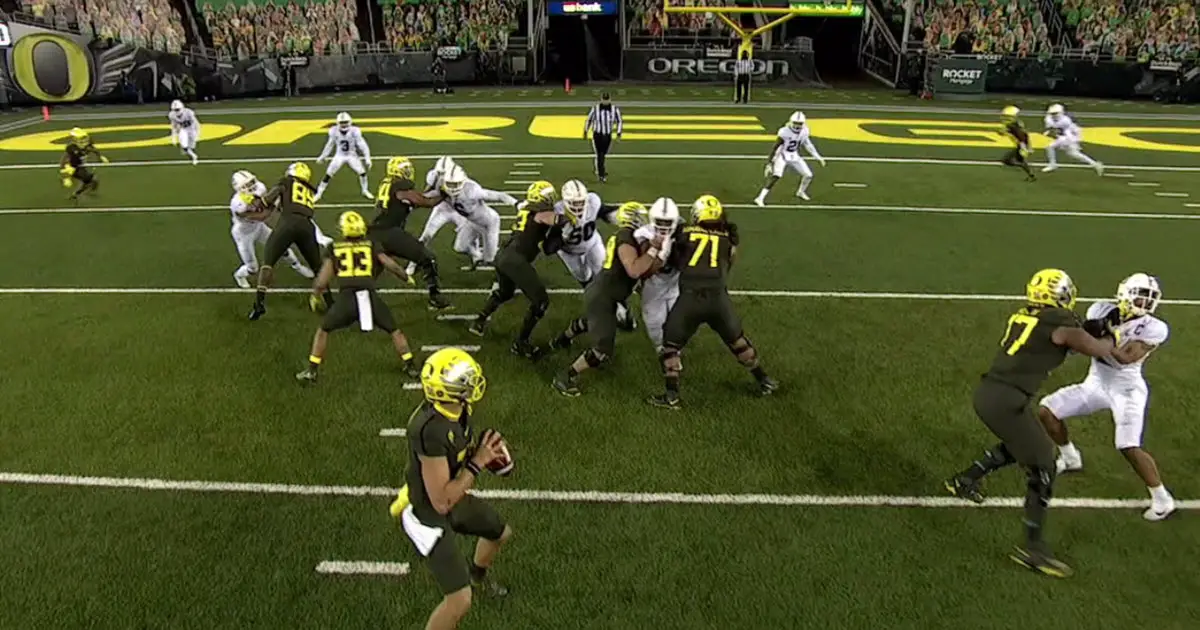When you are an Oregon athlete, there are bound to be some ups and downs that you will face. You may feel great when you are meeting your goals and succeeding, but other times you can feel crushed. While this is typical and happens to most athletes, I have often wondered about the amount of mental therapy available to the athletes at University of Oregon and how often these services are utilized. It seems to the typical fan that the differences in conference competition are so close that any edge, (especially mental) could be the winning difference.
This spring we’ve noted how one pitch can make-or-break our Baseball Ducks, and I began to think about this component in relation to what appeared to be the mental collapse of Oregon quarterback Tyler Shough this last fall. His decline was not based on one throw, and I wonder if his transfer Texas Tech was influenced one-way-or-another by the counseling he was receiving? (or not?) Therapy can provide the additional tools for an athlete to become stronger and improve his/her overall performances, but what if that help is declined?
Do we Really Need Therapy?
You may not understand how therapy can help you or athletes, but the truth is that therapy may be able to help just about anyone. If you experience stress, anxiety, depression, or other symptoms that cause disruptions in your life, (like COVID protocols) chances are that talking to a therapist could improve your mental state, and hence your own results.
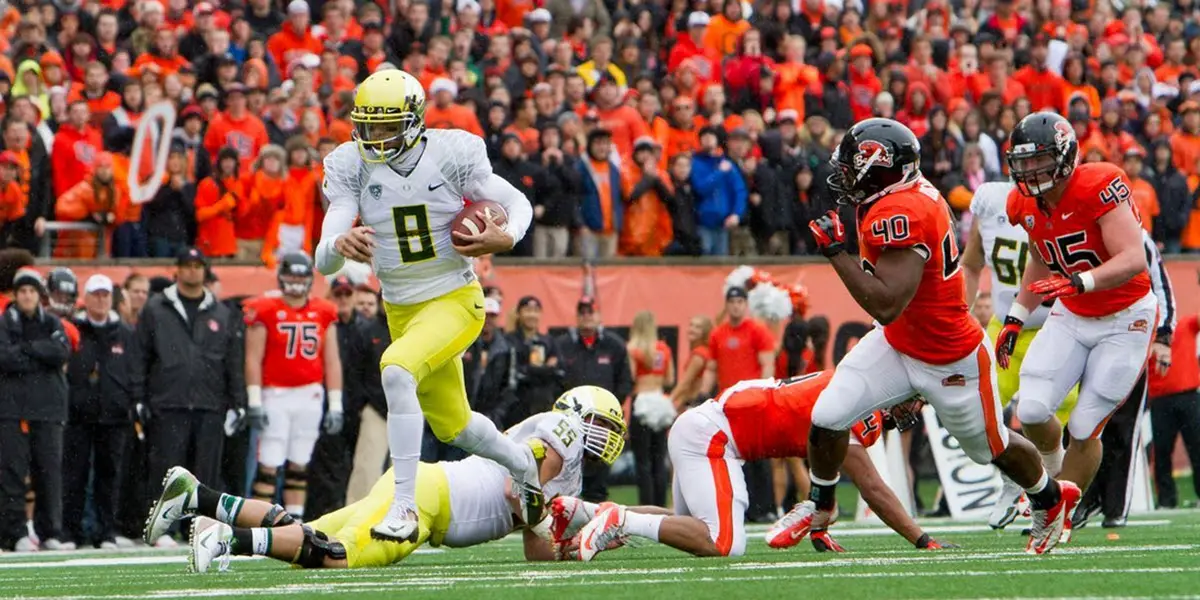
Marcus Mariota ran Oregon’s offense beautifully, resulting in Oregon’s first and only Heisman Trophy.
This is also the case with athletes as they feel pressure to succeed and perform well, however that pressure can intensify whenever they don’t live up to the fans’ expectations. I have to assume that the pressure cooker of being compared to prior quarterbacks at Oregon in addition to facing the mounting concern of teammates could bend anyone’s mind in the very short season Tyler Shough experienced in 2020.
It is beneficial to talk to someone about these pressures whether you are the Oregon quarterback or a fan enduring trying times in her/his life. There is a theory that the mind and body are related, so you must keep both healthy if you want the best life and athletic outcomes. This is necessary to address for athletes and fans and is the main reason that all of us should consider talking to a counselor to achieve the best overall health. This BetterHelp article talks more about the mind and body connection.
Would it Have MATTERED?
We have no idea what happened in the QB meeting rooms and the discussions that took place with Shough, but his loss of confidence in his passing game was apparent to everyone. Did he reject receiving the therapy or was it ineffective in the counseling process from Oregon? I have to assume that with all the strength-building and healing apparatuses in the Athletic complex–the mental game is addressed as well with the football players. Was it even offered to Shough? Could that be a reason why he left?
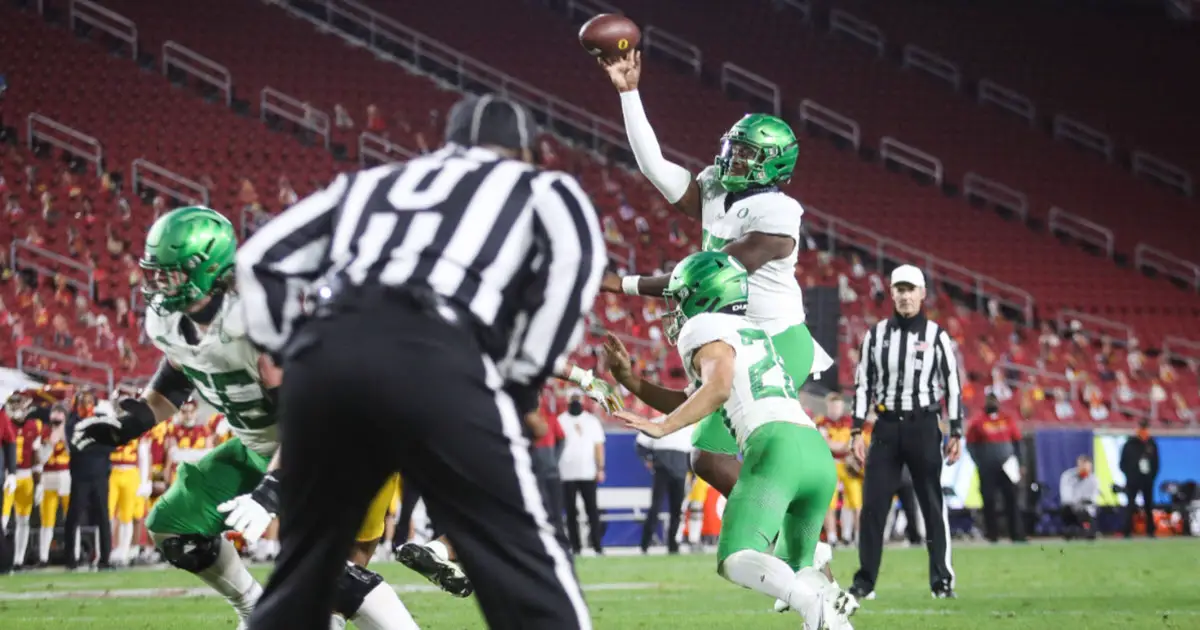
Anthony Brown came in cold and performed well…
The way that Anthony Brown was inserted into the game-plan of the Pac-12 Championship and the Fiesta Bowl was a multi-layered statement to Tyler Shough about the staff’s confidence in him and his progress in defeating his own demons. Since Offensive Coordinator and QB Coach Joe Moorhead was a college quarterback himself–it is assumed that he would be able to relate well with his starter. Yet the decline at key moments by Shough was puzzling, and could raise questions if another quarterback at Oregon acquires confidence problems in 2021?
Is this something to watch for at Oregon?
If you feel like you could benefit from seeing a therapist, there are options available to you, although not as specialized as an Oregon athlete might receive. Online therapy is popular and there is evidence that it is also effective. With this election, you will be able to talk to a therapist whenever it is convenient, and in a place where you feel comfortable. Moreover, a therapist can help you and Oregon quarterbacks learn techniques to keep anxiety at bay and lower the stress levels. Consider it a way of working out your mind, like you work out your body as many UO athletes do.
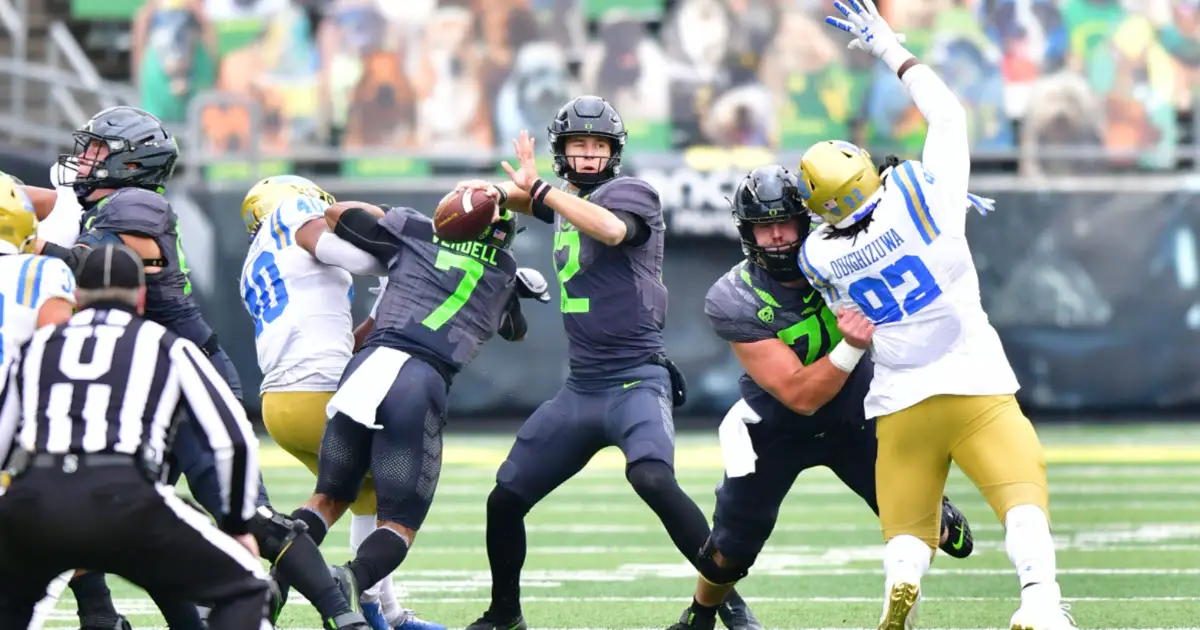
CJ Verdell, Tyler Shough and Alex Forsyth.
Most observers will pin the losses last year to the quarterback as this leader must have no-memory of mistakes in a similar way that defensive backs can be burned for touchdowns, and yet make the saving interception at the end to win the game. The talent is there with Tyler (as the Red Raiders will attest to) and if he unlocks it at Lubbock, what does that say about the player development at Oregon? I am troubled by this whole situation, as it is so unusual; typically the problem is the lack of talent, and rarely do you see what occurred in Eugene this last season.
It is a long off-season and a great time to be reflecting on the last campaign. Do you have concerns about what transpired with Tyler Shough?
OregonReigns
Lakeside, Oregon
Top Screenshot from Pac-12 Video
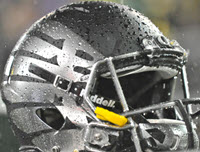
OregonReigns is an occasional contributor to FishDuck and loves his Ducks!

